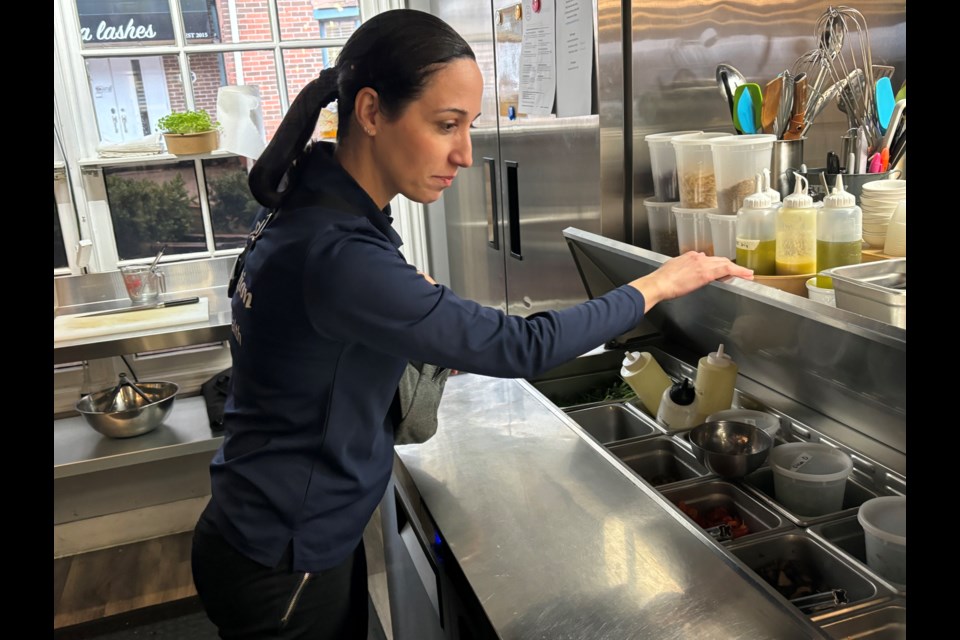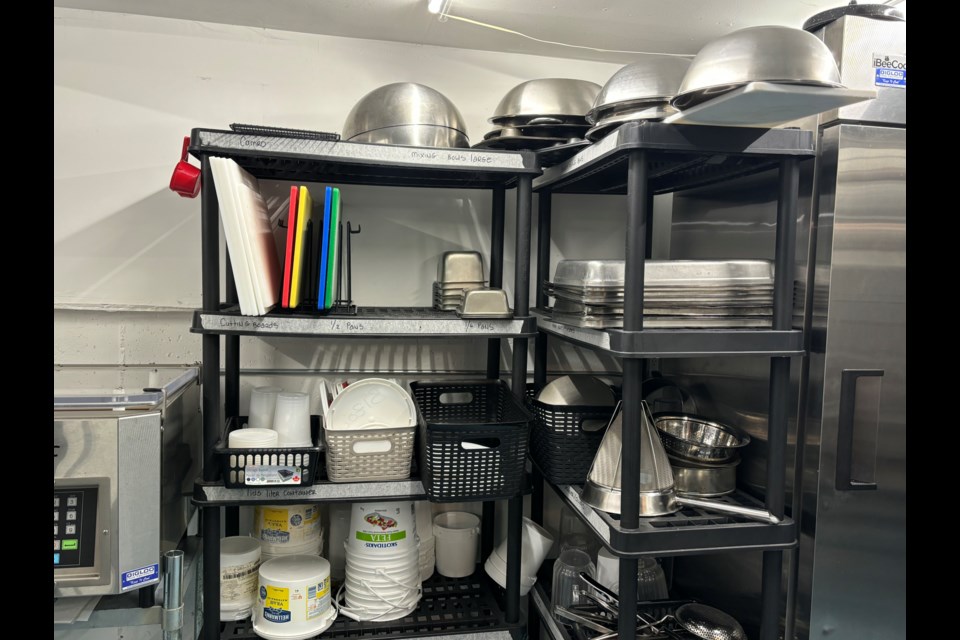Here's how York Region public health inspectors ensure diners are safe
Marika Italiano checked every corner, surface, and appliance at Sweet Dutchess Kitchen and Cafe in Aurora.
The York Region senior public health inspector wrote notes, used a flashlight to see dark corners, and checked the internal temperature of the fridges with her pocket thermometer.
“Typically, I write my notes in my notebook and input it in my inspection form after,” said Italiano. "Some inspectors do it at the time. They write it on the report in their phone, which is helpful because we do have the capability to do it electronically.” Italiano inspected the restaurant April 3 as part of YorkSafe, York Region's enhanced public health inspection reporting program. It discloses the results of routine inspections, complaint inspections, and re-inspections at restaurants and food premises across the region, available online to diners and consumers.
“We’re mandated to inspect any food premise and a food premise is anywhere that sells, processes, provides, or sells food or milk,” said Dorianna Simone, manager of health protection, community and health services. “We do that based on a risk-based approach.” Inspections are often random so owners don’t get a heads-up. They also investigate complaints if they receive notice from community members.
As part of temperature control, Italiano would look for potentially hazardous food at internal temperatures of 4°C (40°F) and lower or 60°C (140°F) and higher, food held in a frozen state, food processed in a manner that makes the food safe to eat and thermometers on appliances used to verify potentially hazardous food storage temperatures.
“A lot of our job is education,” said Italiano. “We’re here not just to enforce but to provide education so that we’re a resource for the operator.”
Public health inspectors check a variety of establishments in York Region to ensure they meet minimum public health requirements.
Sweet Dutchess co-owner Rob Velenik was not nervous. “I expect them every day,” said Velenik. “We run the business like they will inspect it every day.”
Public health inspectors make sure food is protected from contamination and adulteration. They would see if employees separate raw food from ready-to-eat foods during storage and handling, if the food was covered, labelled, off the floor, stored on racks, if there were sneeze guards, physical hazards during display and transport, a constant supply of hot and cold running water under pressure, food from an inspected source, manufactured meat products, safety procedures, and records.
“We’re used to it, we have been in the industry for many years,” said Velenik. “What they’re looking for has been routine for us every day, the way we run our business. Making sure fridge temperatures are fine, making sure food is cooked at proper temperatures, storage and cleanliness, and hot water.”
Inspectors would look to see if employees followed food handler hygiene and handwashing, if food contact surfaces, utensils, and equipment were properly maintained, designed, constructed, and installed, if mechanical dishwashing and manual dishwashing were maintained, and if there was adequate protection against the entrance of insects and pests.
They would check sanitary maintenance and the ensure there's enough supplies in staff and public washroom facilities, how frequent garbage and liquid waste is removed to maintain the premises in a sanitary condition, and general housekeeping.
“As Marika is doing her inspection, she is using observational skills, watching food handling, hand washing, and asking open-ended questions to operators to assess their food safety knowledge,” said Simone. “She is using her risk assessment skills to pull it all together to complete the inspection.” Restaurants either receive a green public health inspection sign or a red close sign. A green sign is presented to establishments that pass inspections. It states that no infractions have been noted at the time of inspection or infractions may have been noted, however, the number and type of infractions identified do not represent an immediate risk to the health of the public. Sweet Dutchess received a green sign after the visit.
"It was really good, very clean, temperatures were great, and no potential health hazards," said Italiano.
According to the Yorksafe inspection report, inspectors were satisfied with the Sweet Duchess. No immediate action was required by the public health unit. A food handler educator was on-site and a sign was posted as proof of public health.
Sweet Duchess co-owner and chef Marcia Dellepoort said inspectors have an important job.
“Without them, how do we know we’ll eat somewhere safely without getting sick?,” said Dellepoort. “We’re strong and healthy, thank God, but for babies and elderly people, what if the chicken is raw, what if it is not properly held? It can make someone very sick.”
Employers need at least one certified food handler or supervisor on-site during all hours of operation and must ensure the premises are maintained free from every condition that may be a health hazard adversely affect the sanitary operation of the premises, or adversely affect the wholesomeness of the food. Dellepoort expects employees to maintain high standards of cleanliness. “If I expect the kitchen to be clean every single day, then it is clean every single day,” said Dellepoort. “There’s a standard you keep up for yourself and the inspections to follow. Every day the floors are clean, every day everything is wiped down, the fridges are clean and sorted back where it’s supposed to be not only for food safety standards but standards of the owner, operator, and chef.”
A sticker on the sign shows whether or not a food establishment has at least one certified food handler on-site at the time of inspection. Red closed signs are presented to establishments that do not pass inspection and pose an immediate health hazard.
When closure orders and charges are issued, a re-inspection will occur to ensure infractions are corrected. Sometimes minor issues noted during the inspection do not have to be addressed until the next routine inspection. Health hazards that were noted during an initial inspection could be removed if corrected. An establishment can still receive a green sign if there are infractions. Inspectors educate employees to make sure food safety practices are followed.
“Our food inspectors are part of the community," said Simone. "We always work with operators to ensure food safety, for our clients and community members."




No comments:
Post a Comment